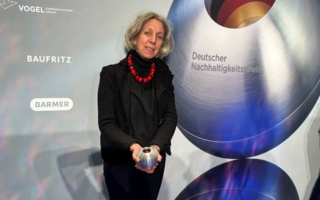28/05/2018 – Heimtex — auf Deutsch lesen
Who does the DUH really help?
A comment by Martin Auerbach, Managing Director of the Association of the German Home Textile Industry.
As its name suggests, the remit of Environmental Action Germany (DUH) is to help the environment. So, how do disciplinary warnings and high-profile lawsuits fit into this picture? Following the debates on topics such as health and safety, resource efficiency and carbon footprints, we are all aware of the direction in which we should be moving if we are to save our planet’s fragile eco-system. Zero emissions and zero waste may be no more than a wishful fantasy but if you set the bar high, you’ll be surprised how much you can achieve. Many targets pursued by NGOs are, objectively speaking, impossible to reach but they fuel public debate and set processes in motion. Unfortunately, the public is often unaware of the lack of technical and scientific knowledge upon which many important discussions are based as the NGOs, business world and public sector battle it out behind closed doors. The DUH differs from the average NGO in that it employs a whole team of staff dedicated to uncovering lacking or incorrect environmental declarations in the furniture and automotive trade, accounting for around a third of its overall budget. But does this help the environment? Probably not, but it certainly helps the DUH secure its future. It’s hardly surprising, therefore, that major cities and car manufacturers frequently come under fire in the media even though vehicles contribute just a fraction to total emissions. Don’t get me wrong, I’m all in favour of taking a closer look at all emissions and of introducing fundamentally new transportation concepts, but when your cellar is flooded, you’ve got rescue much more than just a few precious coins. So, the question remains: Who does the DUH really help?




